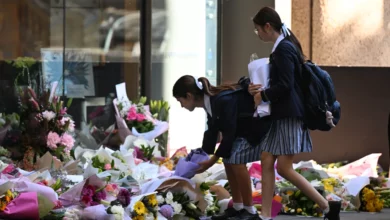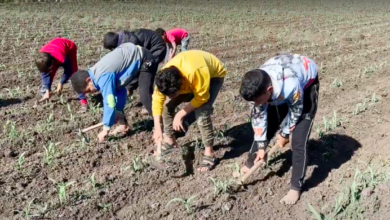Egypt is actively combating human trafficking by adopting appropriate legislation, Joy Ngozi Ezeilo, the UN’s special rapporteur on trafficking in persons, especially women and children, said at a Cairo press conference on 21 April. Nevertheless, she noted, challenges–including a dearth of information about the phenomenon and a lack of legal implementation–remain.
Human trafficking in Egypt is manifested in various ways, including child labor, domestic servitude, sexual exploitation through seasonal marriages, and prostitution. Forced labor, forced marriage and the trafficking of organs are also thriving, if illegal, businesses. Most of these activities take place at the local level, while fewer instances involve transnational trafficking. In a previous statement by Safwat el-Sherif, speaker of the Shura Council, human trafficking represents the third most lucrative illicit business in the world after the arms and narcotics trade.
Ezeilo described Egypt’s adoption of an anti-trafficking bill as a positive step. The bill was approved by the Shura Council–the upper, consultative chamber of parliament–last month. Other recent legal milestones include an organ transplant law and the amendment of child laws to bring them into line with UN norms. Moreover, at the University of Alexandria, a legal clinic was recently established specifically to respond to the needs of trafficking victims.
Despite these legal developments, however, Ezeilo pointed to gaps in implementation. “The lack of a labor law to protect domestic workers and the limited utilization of the labor inspection system to effectively identify victims of trafficking in persons are concerns,” she said.
Aside from the above-mentioned legal procedures and activities, Egypt continues to face challenges in terms of combating trafficking in a sustainable manner, according to Ezeilo.
“The trends, forms and manifestations of trafficking in persons are not well understood. There is a general lack of awareness and knowledge,” she said. “The absence of accurate data about trafficking in persons have made it impossible to measure the magnitude and scale of human trafficking in Egypt.”
In fact, the very scope of human trafficking in Egypt remains uncertain. “Egypt has been described as a transit country, but it’s also a source and a destination. I would like to remind the Egyptian government that human trafficking is a very dynamic phenomenon and it knows no borders,” Ezeilo said.
Studies support the assertion that Egypt constitutes a transit point, destination and source for human trafficking. These studies include a 2009 Trafficking in Persons Report issued by the US State Department’s office to monitor and combat trafficking in persons.
Ezeilo added that street children were particularly vulnerable to human trafficking, and hence posed a special difficulty. Moreover, in mixed migration contexts, victims of trafficking are easily mistaken for irregular migrants. “They are misidentified and even criminalized,” she said.
According to Ezeilo, this is particularly relevant to the issue of African migrants trying to cross the border into Israel from Egypt, who are routinely shot at by Egyptian border guards or tried in military courts.
Ezeilo went on to praise Egypt’s cooperation with UN bodies, showcased in a recent study conducted by the National Center for Social Research to determine human trafficking trends. Cooperation with the International Organization of Migration (IOM) has culminated in the establishment of a pilot medical unit dedicated to the treatment of trafficking victims. “The establishment of the National Coordination Committee for Combating Trafficking in Persons in 2007 manifested a strong political will from the government to tackle the issue,” she said.
But while praising Egypt’s cooperation with international partners, she criticized the concurrent lack of engagement with civil society. “There is an issue with the limited participation and consultation with civil society organizations in formulating anti-trafficking policies and programs,” she said. “The government should strengthen relations with NGOs while guaranteeing their freedom of operation and independence as human rights advocators.”
Ezeilo called for comprehensive training programs targeting Egyptian police, immigration and border guards, prosecutors, the judiciary, labor inspectors, civil society and the media. She also called for the support of trafficking victims through services such as shelters and hotlines.




